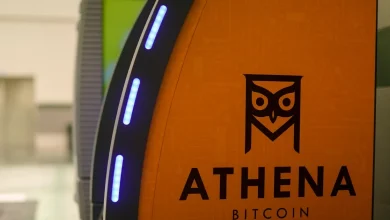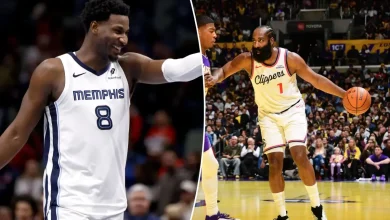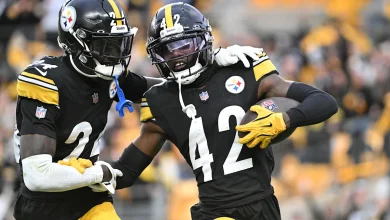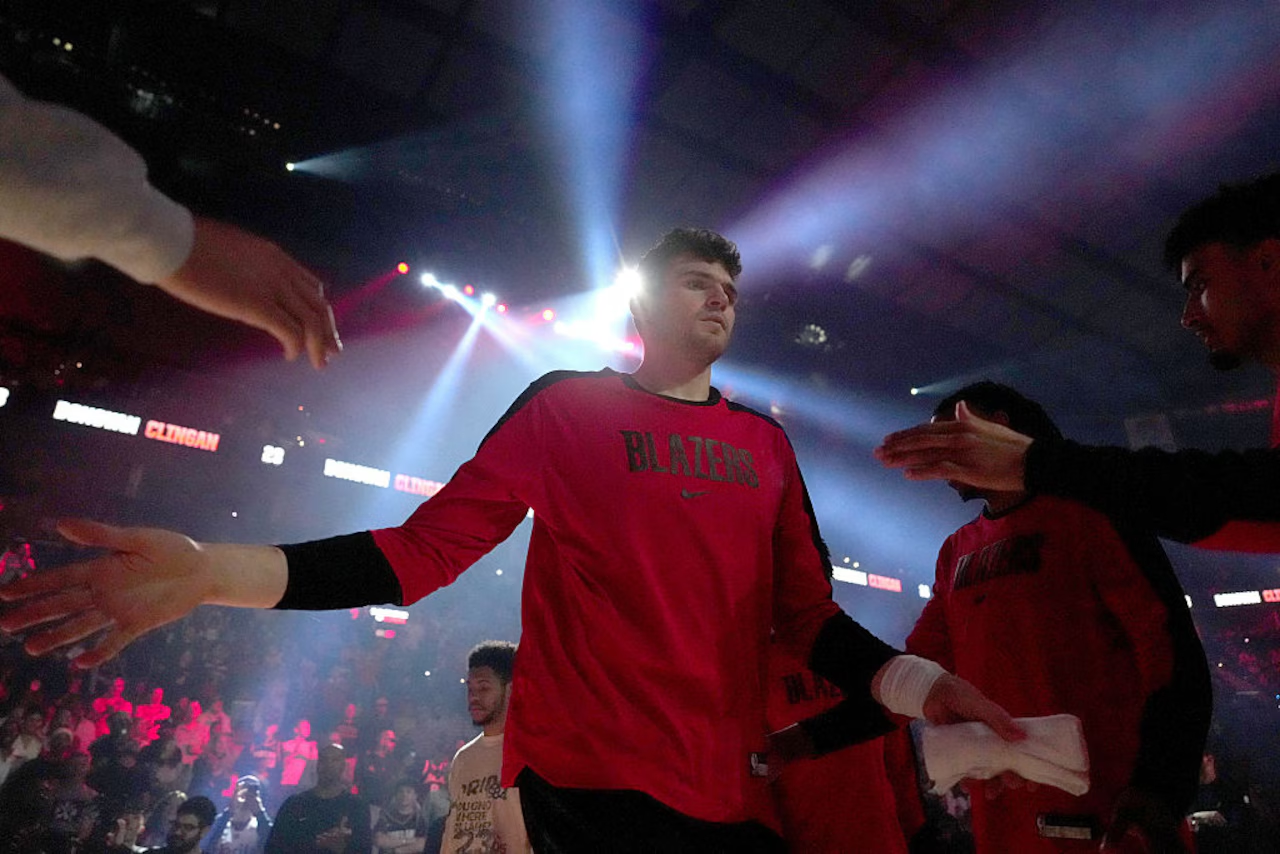Police did 2 welfare checks on Marshawn Kneeland at WMU over concerning behavior
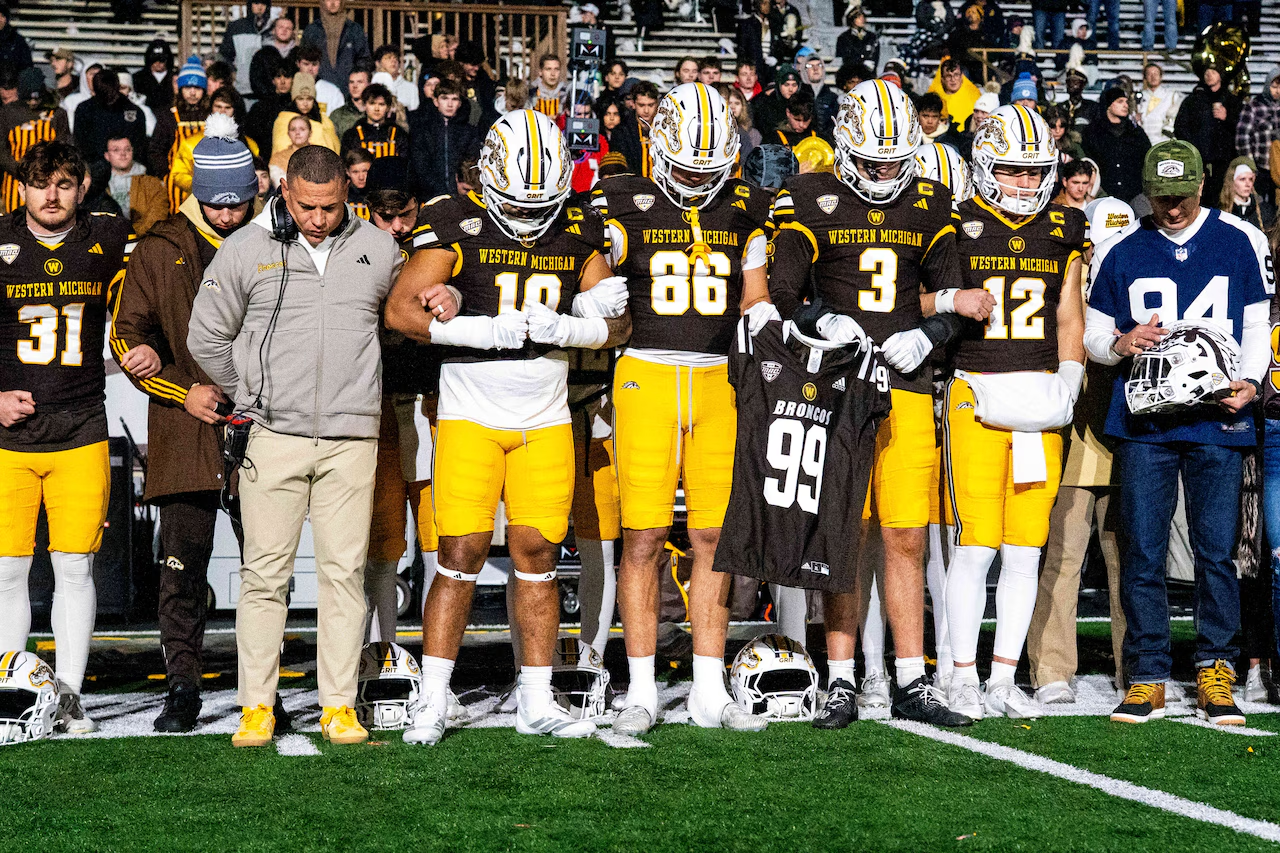
During Marshawn Kneeland’s time in Kalamazoo, Western Michigan University police performed two welfare checks on the former Bronco star football player while he played for the school.
The welfare checks entailed concerns from coaches on Kneeland possessing a gun and of suicidal thoughts, according to records first obtained by ESPN.
Kneeland, a second-round pick in the 2024 NFL Draft by the Dallas Cowboys, died on Nov. 6 from an apparent self-inflicted gunshot wound in Frisco, Texas.
He was 24.
MORE: Marshawn Kneeland honored by WMU in emotional pregame tribute: ‘We played for him’
MORE: ‘We’re heartbroken’: WMU mourns death of ex-Bronco, NFL player Marshawn Kneeland
MORE: Cowboys DL, a West Michigan native and ex-WMU star, dies at 24
WMU football coach Lance Taylor and former WMU defensive coordinator Lou Esposito contacted police in June 2023 with concerns in making sure that Kneeland was “mentally fit to possess a firearm” after Kneeland and his girlfriend separated, according to ESPN’s records.
After conversations with a WMU police officer, Kneeland voluntarily turned in his firearm to campus police “for safekeeping until cleared by a counselor,” per the report.
However, Kneeland reclaimed his firearm from police after being examined by a social worker at Western Michigan Sindecuse Health Center, and obtained a letter that determined him not being a threat to himself or others, the report stated.
The concerns for Kneeland’s well-being were reported as far back as 2020, records indicate.
In September 2020, a friend of Kneeland’s called 911 after becoming distressed Kneeland, and police later found the defensive end near train tracks. Kneeland revealed to police that he was having suicidal thoughts.
“Kneeland told me he was sitting across the tracks in hopes a train would run him over to end his life,” the officer who responded to the scene wrote in a report, per ESPN.
“Kneeland told me life overall and the lack of playing football at WMU had him feeling down. He told me had had been feeling like this for a while. When asked to clarify how long he felt that way, he did not answer. Kneeland said he does not see a therapist or take any medication for his mental health crisis.”
ESPN’s report stated that Kneeland denied medical attention, but Kent County sheriff’s deputies sent him to a hospital in Kalamazoo. No details have been released on how long Kneeland was at the hospital.
According to ESPN, Kneeland’s cousin, Nicole Kneeland-Woods, told ESPN that she was unaware of such incidents.
Kneeland’s family held a private memorial service in Wyoming, Michigan in memory of Kneeland. The service was invite-only with close family and friends, along with some coaches on hand, per ESPN.
“Right now for us, it’s just trying to move forward,” Kneeland-Woods said via ESPN. “Now we can really start the healing process.”
As of Saturday, Taylor was not made available for comment.
“I think when you talk about mental health, we’re all going through tough things and the ability to open up to others and express those things that are on your heart are really hard to do,” Taylor said after WMU’s game against Ohio earlier this month. “I really challenged our group with building those relationships where you can ask those tough questions. (Marshawn) had a great impact on me and he was very special and near and dear to me. He left this world a better place because of the positive impact he had.”
Kneeland died on Nov. 6 after he evaded police during a traffic pursuit, crashed his car and fled on foot. According to a report released Friday by the Texas Department of Public Safety, a trooper clocked Kneeland’s car traveling sometimes more than 145 miles per hour and making “several unsafe lane changes.”
The report stated that the trooper eventually lost sight of Kneeland’s car.
Per TMZ, recorded audio revealed that Kneeland’s girlfriend was concerned over his well being and that he was armed and had a history of mental illness.
Western Michigan’s football team and the Dallas Cowboys have since honored Kneeland before their respective games in the past few weeks.
If you or someone you know needs mental health assistance, the following resources are available:
The 988 Suicide and Crisis Lifeline is a hotline for individuals in crisis or for those looking to help someone else. To speak with a trained listener, call 988.
Visit 988lifeline.org for crisis chat services or for more information.
The Michigan Crisis and Access Line (MiCAL ) is the statewide crisis and access line. MiCAL is a 988 call center and is primarily responsible for answering 988 calls originating from Michigan.
If you purchase a product or register for an account through a link on our site, we may receive compensation. By using this site, you consent to our User Agreement and agree that your clicks, interactions, and personal information may be collected, recorded, and/or stored by us and social media and other third-party partners in accordance with our Privacy Policy.

